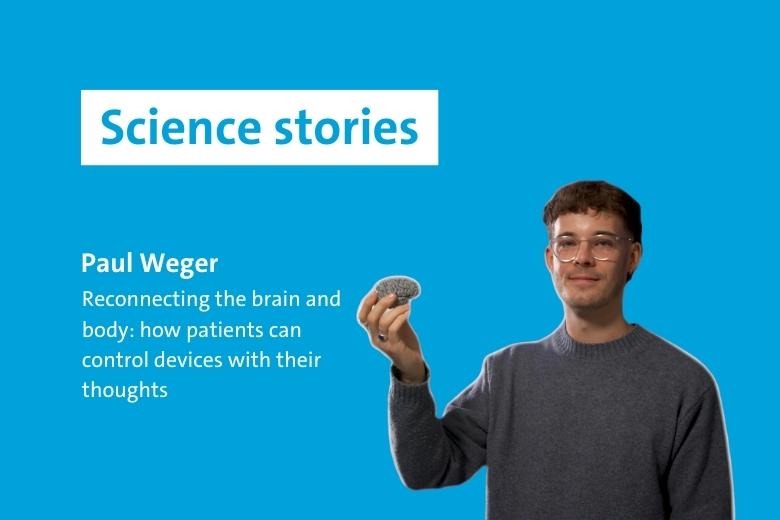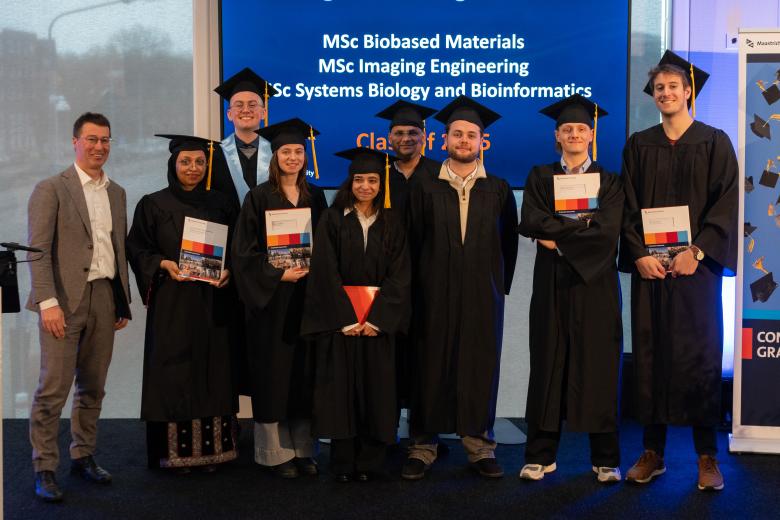Assessment is beautiful
“Learning and assessment” is the title of the chair held by Prof. dr. Desirée Joosten-ten Brinke (SHE). While the Dutch word for assessment (toetsen) often carries a negative connotation, Joosten-ten Brinke sees it as something quite beautiful. After all, assessment is not only about judgement, but also about stimulating learning by identifying where you stand in relation to your goals. Joosten-ten Brinke explains: “To me, the balance between learning and assessment is crucial. My main aim is to improve the quality of assessment in education – and to show the world how positive assessment can actually be.”
At the School of Health Professions Education (SHE) of Maastricht University, Joosten-ten Brinke works across three core themes: the balance between learning and assessment, the use of technology, and learning in the workplace. “Learning and assessment is a broad theme that spans the entire educational process: how do we determine whether learning has taken place, and how can we encourage students to keep learning? Assessment shows what you already know and what you don’t yet know. While much of our research focuses on students in FHML education, the idea of learning through assessment extends far beyond the classroom – it also applies to workplace learning and lifelong development. For example, we also study how people learn at work to improve their performance, grow professionally, or gain recognition for competencies they've acquired earlier – the concept of Recognition of Prior Learning (RPL)."
How did the world of assessment cross your path?
Joosten-ten Brinke: "I wasn’t exactly the student who always scored top marks, and I certainly didn’t love exams. Just an average student. But I was fascinated early on by how the CITO test was constructed. I wondered: how does this work? Who decides what goes into the test? I knew it wasn’t my teacher who wrote it! I went on to study educational sciences and graduated in educational measurement and data analysis. I started from that traditional testing, psychometrics. How do you know if a test is too easy or too difficult? How do you write effective test questions? Then I moved more towards digital testing. When I worked as an educational technologist at the Open Universiteit of the Netherlands, the interest in technology grew further, especially how we can use technology to use education more effectively and efficiently. And how we can use technology to stimulate learning."
Balance between learning and assessment
Joosten-ten Brinke: “Traditional education models are often built around ten weeks of instruction followed by an exam. Then it is established whether the student has mastered the material. And right after, the student is free to forget everything again, because the next term starts and ends with an exam. But of course, we want students to truly learn and retain knowledge for future use. While learning, students often underline texts with a highlighter or make summaries. We make students aware that learning, storing and retrieving knowledge is important for their personal development and that it is important that they start learning in the first week of the block and not the day before the exam. But how do you achieve that?"
Ask someone what they’ve learned today, and they’ll often say: ‘Learned? I just did my job!’. But we learn something new nearly every day.
Practice tests
Joosten-ten Brinke: “In the learning process, you can stick the thermometer in every now and then to see: what have you learned? What do you already know and what you still need to master. This doesn't have to be after ten weeks. It can also be done after two weeks or after five weeks. A practice test can be used as a thermometer. The question is: does such a test indeed encourage students to start learning earlier and is it (therefore) a more suitable tool than simply advising students to study? We see that students who take a practice test perform better and remember the material more effectively than those who only summarize or highlight. Those methods often give the idea of: ‘oh, I recognise it!’. But that doesn't mean you can write down the right answer yourself. A test forces you to retrieve knowledge from memory. This retrieval effect, explored in cognitive psychology, strengthens learning. So with tools like practice tests, the boundary between learning and assessment starts to blur.”
Programmatic assessment
Joosten-ten Brinke: “I often hear people say that we test too much, but then I say: maybe we are not testing enough! Just think: every question you ask a student in a PBL group is a form of assessment, a way to check whether students understand or to make them think more deeply. Asking questions is actually testing: where do we stand? What will be my next step? I’m constantly searching for the right balance between assessment for learning and assessment of learning. That balance is also found in programmatic assessment, used in several of our programs. Here, we don’t make decisions based on one single exam. Instead, we look at the full picture – what students have learned over time, and whether they’ve used feedback to improve. Only after a year do we look at their full portfolio to decide whether they can move forward. A single failing result doesn’t have to be decisive. It’s about the combination of assessment moments – or data points – that matters.”
Learning in the workplace (and technology)
Joosten-ten Brinke: “People aren’t always aware of the learning they do at work. Ask someone what they’ve learned today, and they’ll often say: ‘Learned? I just did my job!’ But we learn something new nearly every day. That’s one of the advantages of working. And in professional settings, assessment – checking where you are and what your goals are – plays a role too. For that, we are exploring how to use technology. As an example: at the end of the year, we all have a performance review. Then we fill in a form and possibly ask some colleagues for input. But imagine if AI could analyze everything on your computer to help identify your strengths and areas for development. That could be a rich source of insight. But as with all AI research, there is immediately an ethical component to that. Because I assume you won't be happy if I say, ‘Just give me your laptop and I'm going to make a judgement on whether you are functioning or not’. That’s not acceptable. So we ask: what’s possible, and what isn’t?"
Assessment often has a negative reputation. But when you look at it more broadly, it’s really just a tool to stimulate learning and see whether learning has taken place.
Assessing students by AI
Joosten-ten Brinke: “We’ve just launched a project to explore whether AI can conduct oral exams in education. Now that students can do more and more with AI, teachers like to use an oral to check whether students actually understand what they have written in a thesis or paper. However, if you have a group of 300 students, you don’t have time for 300 oral examinations . We are now going to see if AI can do that. We’re now working with FSE to develop a prototype. It turns out that computers can handle basic cognitive tasks like recognition and understanding but what we’re aiming for is an AI-based oral exam that can assess higher-level skills like analysis and evaluation.”
The image of assessment
Joosten-ten Brinke: “Assessment often has a negative reputation. But when you look at it more broadly, it’s really just a tool to stimulate learning and see whether learning has taken place. For me, the main questions are: where do you want to go, where are you now and what are we going to do to bridge that gap? Testing is about personal development, about every next step you take in it. Even asking yourself a question during your learning process is, in fact, already a testing moment. But in the Netherlands at least, the term (‘toetsen’) carries a certain weight. It’s the same with performance reviews at work: they often feel tense. But why should it be stressful to determine where you stand in relation to your goals? I would love to see that negative image change. Assessment is beautiful!”
Text: Eline Dekker
Photo: Joey Roberts
Also read
-
Reconnecting the brain and body: how to control devices with your thoughts
Can you control a robotic arm with your thoughts? Paul Weger (MHeNs) studies this to give back independence to patients with neurological conditions.
-
Green school playgrounds boost concentration and wellbeing
Children at schools with green playgrounds are better able to concentrate and display more social behaviour. This is the conclusion of a follow-up study within the long-running project The Healthy Primary School of the Future .
-
Ron Heeren appointed fellow of the Netherlands Academy of Engineering
Professor Ron Heeren, distinguished university professor at Maastricht University (UM) and director of the Maastricht MultiModal Molecular Imaging Institute (M4i), was appointed as a fellow of the Netherlands Academy of Engineering (NAE) on Thursday 11 December.